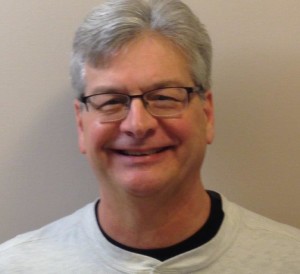 When the late Fred Craddock was the acting dean for a brief time at Phillips Theological Seminary, a woman from the community came to see him. She asked him to come out to the parking lot, which made him a bit nervous, but he went. She opened the back door of her automobile, and slumped in the back seat was her brother. He had been a senior at the University of Oklahoma, but a tragic car accident had left him in a coma for eight months. She had quit her job as a school teacher to take care of him.
When the late Fred Craddock was the acting dean for a brief time at Phillips Theological Seminary, a woman from the community came to see him. She asked him to come out to the parking lot, which made him a bit nervous, but he went. She opened the back door of her automobile, and slumped in the back seat was her brother. He had been a senior at the University of Oklahoma, but a tragic car accident had left him in a coma for eight months. She had quit her job as a school teacher to take care of him.
At this point almost all of their resources were exhausted. She said to Dr. Craddock, “I would like for you to heal him.” Can you imagine? What would you say? Dr. Craddock responded, “Well, I can pray for him. And I can pray with you. But I do not have the gift of healing.” The woman got behind the wheel and retorted, “Then what in the world do you do?” And she drove off.
In 1977 I walked in to H.E. Coker’s “New Testament Introduction” class at Campbellsville College in Kentucky, carrying my New Scofield Reference Bible, with not only an infallible text, but with infallible notes. Dr. Coker wasn’t impressed. He didn’t concede to all my certitudes and absolutes. He wanted me to toss out my Scofield Bible and think for myself. But at that stage in my pilgrimage I was stuck, and it was just too difficult for me to do. When Dr. Coker challenged my assumptions, biases and beliefs about God, the Bible and all things holy, I was offended and I walked away.
“Why do we become so easily offended when our beliefs, attitudes or actions are challenged?”
Why do we become so easily offended when our beliefs, attitudes or actions are challenged? Is it fear? Insecurity? Ego? As I reflect on my own journey I think it has been mostly about my ego and being overly invested in my image, or my reputation or my sense of competence. So when I thought those things were being called into question, it was easy for me to feel offended.
I don’t know how Dr. Craddock felt after the woman took offense at his inability to heal her disabled brother. In fact, Dr. Craddock might have taken offense too. If he did, he surely offers us a lesson in how something positive can come from such encounters. The woman had asked, “Then what in the world do you do?” If Dr. Craddock did take offense, he did not turn it toward the woman. He did not think, “The nerve of her to question what I do.” Rather, he turned the question inward and allowed it to sink deep into his heart. Obviously, he knew that he had no responsibility to heal her brother. But instead of being frustrated, agitated or angry with the woman, he let her question get inside him. He went back into his office and kept asking himself all afternoon, “What in the world do you do?” He decided to use the occasion to ponder and question his calling and expectations as a minister.
When Dr. Coker challenged my beliefs and theological biases, instead of becoming angry at him, what if I had turned my attention inward and began to look more deeply into my soul? Maybe I would have begun to see just how inseparably my sense of offense was connected to my ego. Instead of viewing Dr. Coker as the problem, what if I had looked inward and asked, “Why am I so frustrated and angry and offended that this college professor has challenged my beliefs?” Had I turned my offense inward maybe it wouldn’t have taken me so long to become aware of the role my ego was playing in my need to be right and to have all the answers. I saw Dr. Coker as the problem, when in reality, it was my ego that was the problem.
I’m not sure any of us really become so God-like and divested of ego that we don’t get offended. So the question is: What are we going to do about it? If I react in a negative way maybe I need to ask forgiveness. Or maybe I need to be forgiving. Either way, I certainly need to look inward at what is causing me to take offense. Once I become aware, which is the key to all spiritual growth and moral development, then I can be intentional about taking the necessary steps. Then, I could nurture the appropriate attitudes and develop the requisite habits that would allow me to divest myself of the fears, anxieties, worries, ego needs or whatever else makes me so vulnerable to becoming offended.
